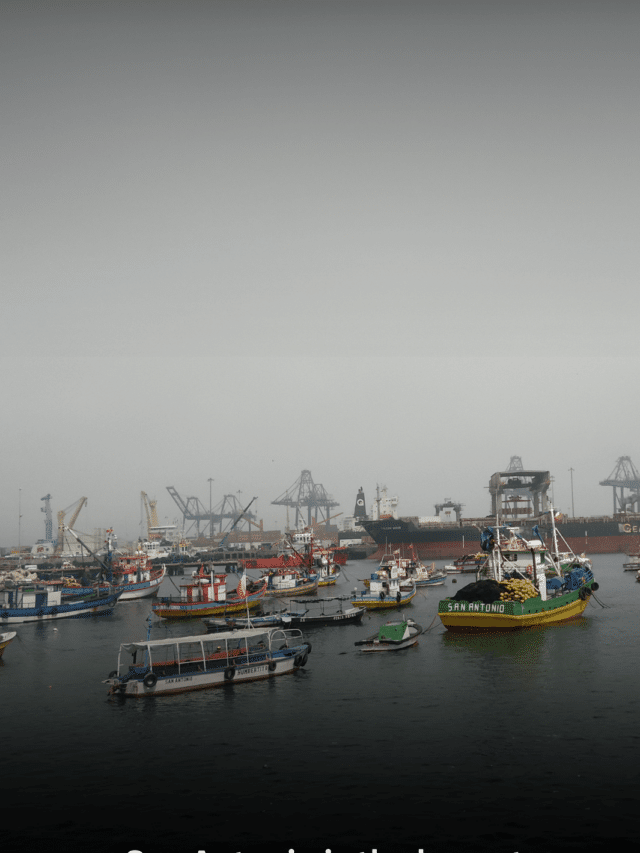What Happens When An Indian Seaman Deserts A Ship?
We all know that a seaman cannot desert his or her ship on any condition. Yet there have been cases in the past wherein Indian seafarers have left the ship at a port never to return back. They didn’t turn up when the ship was scheduled to sail out. In such condition, the common questions that comes to one’s mind are:
- Was the seaman fined or deported back to India ?
- Were the company and the owners penalized ?
- Is the onus always on the Seaman?
In this article , we try to find answers to these question by taking two real life incidents as described below.
Gone are the days when seaman were flogged or were given lashes for desertion. Times have changed in shipping and the laws governing the seamen and the trade have also changed dynamically since their inception.
The below mentioned case studies reveal laws detailed in The Merchant Shipping Act ,1958 for Indian Seamen when the later desert their ships.

The act defines :
A Seaman – It means every person except Master, Pilot or Apprentice who is Engaged on a Ship under MS Act.
Indian Ship – A ship registered under the Merchant Shipping Act and at any port in India.
Case Study 1 : What Happened when an Indian Seaman Mr. A Singh ( Name changed upon request) CDC deserted an Indian flagged vessel registered in Mumbai at Vancouver, Canada in 1998 ??
On 23 May 1998 @ 1200 Mr. A Singh who was working as an able seaman onboard an Indian flag vessel “ M.V. ABCD” left the vessel to go ashore. However he did not return till 24 May at 0600hrs while the vessel was ready to sail.
What Indian law Says : The provisions explained in MS Act ,1958 concerned with matters of discipline firmly declare that no seaman, master or any apprentice who belongs to an Indian ship shall do anything which leads to the loss to the ship or by his actions endangers life of his fellow seaman or belongings of the ship or its crew.
A seaman cannot refuse to follow any legal instruction or perform a lawful duty by which it is possible to save the ship from a serious damage or for saving life or preventing injury to his fellow seafarers.
Mr. A Singh, who was lawfully engaged onboard M.V. ABCD in the very first place was not allowed to desert his ship as per the MS Act. Being an Indian Seaman he was not to be absent from ship without leave at any time when the vessel was in port. He should have reported to the vessel within twenty four hours of it sailing from the port. Mr. A Singh wasn’t entitled to be absent from the vessel without leave granted to him by the Chief officer or the Master.
The vessel’s agent however got a word from the local authorities when they stopped and questioned Mr. A. Singh. Upon interrogation the local authorities found that Mr. A Singh had no sufficient reason to remain absent from his ship and duty. He was presented before the local court where his act of desertion was justified as an offense against the ship and its owners. The court however did not sentence him but he was ordered to be conveyed to the vessel so that the vessel could proceed further on its voyage. All the expenses incurred by the agents and owners were ordered to be paid by Mr. A. Singh or to be deducted from his wages.
(In above case, the master of the vessel M.V. ABCD was entitled to arrest him without producing a warrant but as far as it was permitted by the local laws of the port.)
While the vessel was at the port of Vancouver, the master then made an entry in the Official Log book of the offense against Mr. A Singh on grounds of discipline and desertion. The entry was signed by the Master, Mate and one of the crew members. The consular officer made a copy of the entry and certified it. The master then transmitted these copies to the shipping Master at the port of Vancouver, where Mr. A Singh was shipped. The consular officer also made a separate report to The Directorate General of Shipping In India regarding the offense of desertion. The Directorate General thereupon directed the Consular officer and the Master to withheld his Continuous Certificate of Discharge for a period of Three years.
After the vessel left the Port of Vancouver, during the voyage, he was provided with a copy of the entry and the same was read over to him distinctly and audibly. Upon hearing the entry, Mr. A. Singh provided his statements and justifications which were recorded in the Log book that was countersigned by the Master, Mate, Mr. A Singh and one of the crew members. The wages of Mr. A Singh were also forfeited on the grounds of desertion from the vessel.
Case Study 2 : What Happened when an Indian Seaman Mr. B Singh (Name changed upon request) CDC deserted an Indian flagged vessel registered in Mumbai at Avonmouth , UK in 1995?
On 10 Sept. 1995 @ 0900 hrs. Mr. B Singh who was working as an able seaman onboard an Indian flag vessel “ M.V. XYZ” left the vessel to go ashore, However he refused to sail on 11 Sept. at 0900hrs while the vessel was ready to sail on the grounds that the vessel was unseaworthy.
In the above case Mr. B. Singh revealed in front of the Master that the vessel suffered damages in the forward bulkhead during rough weather and thus he considered that the vessel was unseaworthy to sail further with. He made a complaint to the Seaman’s welfare officer and the Indian Consular Officer at the Port of Avonmouth. The Indian consular officer and the local port authorities upon investigation found the forward part of the vessel damaged and thus by condition of class rendered the vessel unseaworthy. Thus, as per the provision of MS Act Mr. B. Singh’s was justified in his willful absence from the ship and his refusal to join the ship for further voyage. His action was not considered as an offense against discipline.
Thus MS Act, 1958 clearly demarcates Unseaworthiness of vessel or any other sufficient and justifiable cause as the only reasons wherein a seaman cannot be made an offender even so he leaves or deserts the ship or is absent from the ship or his duty.
Other justifiable reason can be when a seaman is not medically fit or has suffered from an injury which renders him medically unfit for performing his duties onboard or when the wages of Seaman are not paid according to his articles of agreement or they are not being paid on time. The quality of food, hygiene and sanitation onboard too can become valid grounds for a seaman’s refusal to join his duty or ship in certain cases ,where they are not as per mentioned in his articles or as per the guidelines laid by ILO/ WHO.
Disclaimer: “The characters in this article are fictitious and any resemblance to persons living or dead is purely coincidental.”
You may also like to read – 7 Ancient Sea Ports of India
Do you have info to share with us ? Suggest a correction

About Author
Abhishek Bhanawat is a chief officer who has worked on various types of tankers. He specializes in Crude Oil and Product Tankers. He is highly passionate about his work and loves to sail.
Latest Maritime law Articles You Would Like:
Latest News
- What are Logistics Risks?
- How Port and Terminal Operators Can Control Emissions?
- Minimum Quantity Commitment (MQC) and Liquidated Damages in Container Shipping: Concept and Relevance
- MARPOL (The International Convention for Prevention of Marine Pollution For Ships): The Ultimate Guide
- The Ultimate Shipping Container Dimensions Guide
- A Comprehensive Overview of IMDG Code for Shipping Dangerous Goods
Subscribe To Our Newsletters
By subscribing, you agree to our Privacy Policy and may receive occasional deal communications; you can unsubscribe anytime.
Web Stories





















sir,
i am clear imu cet so iam choose a engine department that a right decision please answered me
Dear Siddhant,
It depends on your personality and interest on what field to choose. If you have any specific questions or doubts , do mail us at info@marineinsight.com
Chief if you don’t mind can you give me software about calculated Error compass and about calculated loading,discharging oil tanker?
@irwan juliono tampubolon : Dear regret I do not have that software with me.
For loading/discharging you will have loadicator computer onboard which can assist you in calculation.
@preritbaweja@ : The present market scenario doesn’t leave one with much choice. HOwever ownership companies were always first preference though a company should be safe to work with at all times both onboard and ashore.
respected- sir have to completed my G.P.Rating and now i have Indian CDC but i have tried lots of company’s but there was no answer and i had my entire education loan sir if u can do something for me like suggest me there some good company’s sir I’ll admire u in my whole life ? thank u sir
an indian working(was on a transit usa visa ”c1d”)
with a cruise line in america deserts the ship later surrenders to the usa customs and gets deported back to india,gets banned from entering usa for 10 years..is he eligible to apply for an indian continuous discharge certificate?
@ sharath : Applying for an Indian CDC should not be a problem as the offence was not within Indian jurisdiction and USA has taken necessary action of deporting and banning entry. However if any indian endorsements or documents were involved taking up matter with DG Shipping is advisable provided the reason for desertion was a valid one.
Sir I have complete stcw and I have librerian cdc.which company give me job …librarian cdc good or not good ..sir plz help me.plz give me some useful information ..
@Rampal: You mean to say Liberian CDC. It does not hold a strong value amongst Indian, UK, and Singapore CDCs
Hi sir,
How will change Liberian cdc into Indian CDC (experience based),how much month will having sea experience.